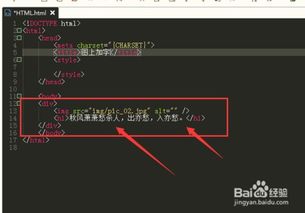Angular 是一个由 Google 维护的开源前端 JavaScript 结构,它用于构建单页运用程序(SPA)。在 Angular 中,路由是一个中心功用,它答应开发者将运用程序的不同部分与不同的 URL 途径相关起来。这样,当用户在浏览器中输入或点击一个链接时,Angular 路由器会依据 URL 途径将用户导航到相应的组件。
Angular 路由的基本概念
1. 路由器(Router):Angular 的路由器担任办理运用程序的路由。它监听 URL 的改变,并依据这些改变来决议显现哪个组件。
2. 路由装备(Route Configuration):路由装备界说了 URL 途径与组件之间的映射联系。每个路由都有一个途径和一个对应的组件。
3. 路由护卫(Route Guards):路由护卫能够用来维护路由,保证只要满意特定条件的用户才干拜访特定的路由。
4. 重定向(Redirects):重定向能够将一个 URL 途径重定向到另一个途径。
5. 辅佐路由(Auxiliary Routes):辅佐路由答应在一个视图中显现多个组件。
装置和装备 Angular 路由
1. 装置 Angular CLI:假如你还没有装置 Angular CLI,能够经过以下指令装置:
```bash npm install g @angular/cli ```
2. 创立 Angular 运用程序:运用 Angular CLI 创立一个新的运用程序:
```bash ng new myapp cd myapp ```
3. 增加路由模块:在 `src/app` 目录下创立一个新的模块,比方 `approuting.module.ts`:
```typescript import { NgModule } from '@angular/core'; import { RouterModule, Routes } from '@angular/router'; import { HomeComponent } from './home/home.component'; import { AboutComponent } from './about/about.component';
const routes: Routes = ;
@NgModuleqwe2, exports: }qwe2 export class AppRoutingModule { } ```
4. 在主模块中导入路由模块:在 `src/app/app.module.ts` 中导入 `AppRoutingModule`:
```typescript import { NgModule } from '@angular/core'; import { BrowserModule } from '@angular/platformbrowser'; import { AppRoutingModule } from './approuting.module'; import { AppComponent } from './app.component'; import { HomeComponent } from './home/home.component'; import { AboutComponent } from './about/about.component';
@NgModule, imports: , providers: , bootstrap: }qwe2 export class AppModule { } ```
5. 创立组件:在 `src/app` 目录下创立 `home` 和 `about` 组件:
```bash ng generate component home ng generate component about ```
6. 在 `src/index.html` 中增加导航
```html Home About ```
现在,你现已成功装备了 Angular 路由。当用户点击导航链接时,Angular 路由器会依据 URL 途径显现相应的组件。
深化了解Angular路由:构建高效单页运用的要害

在当今的Web开发范畴,单页运用(SPA)因其快速呼应、用户体会杰出等特色而备受喜爱。Angular作为一款盛行的前端结构,其路由功用是完成SPA的要害。本文将深化探讨Angular路由的概念、装备和运用技巧,协助开发者构建高效的单页运用。
一、Angular路由概述
Angular路由是一种机制,它答应开发者界说URL与组件之间的映射联系。当用户拜访不同的URL时,Angular会依据装备的路由信息,动态地加载和显现对应的组件。这种机制使得单页运用能够完成页面间的无缝切换,而不需求从头加载整个页面。
二、Angular路由的基本概念
在Angular中,路由主要由以下几个概念组成:
路由装备(Route Configuration):界说了URL与组件之间的映射联系。
路由模块(RouterModule):供给了路由相关的服务和指令。
路由器(Router):担任解析URL并加载对应的组件。
路由参数(Route Parameters):答应在URL中传递参数,用于动态加载组件数据。
三、Angular路由的装备

要装备Angular路由,首要需求在模块中导入RouterModule,并在模块的声明部分增加路由装备。以下是一个简略的路由装备示例:
```typescript
import { RouterModule, Routes } from '@angular/router';
import { HomeComponent } from './home/home.component';
import { AboutComponent } from './about/about.component';
const routes: Routes = [
{ path: '', redirectTo: '/home', pathMatch: 'full' },
{ path: 'home', component: HomeComponent },
{ path: 'about', component: AboutComponent }
@NgModule({
imports: [
RouterModule.forRoot(routes)
],
declarations: [
HomeComponent,
AboutComponent
],
exports: [
RouterModule
export class AppRoutingModule {}
在上面的示例中,咱们界说了两个路由:一个是根路由('/'),它会重定向到'home'路由;另一个是'about'路由,它对应AboutComponent组件。
四、Angular路由的运用技巧

运用懒加载(Lazy Loading)进步运用功用:经过将组件模块分割成多个独立的模块,并在需求时才加载,能够明显进步运用的发动速度。
运用路由护卫(Route Guards)操控路由拜访:路由护卫能够用来查看用户是否有权限拜访某个路由,或许在某些情况下阻挠用户拜访。
运用路由参数传递数据:经过在URL中增加参数,能够将数据传递给对应的组件。
运用路由重定向(Route Redirection)简化导航逻辑:经过重定向,能够将一个路由的拜访重定向到另一个路由。
五、Angular路由的实践运用
用户界面导航:完成单页运用中的页面跳转,如主页、产品列表、购物车等。
权限操控:依据用户的人物或权限,动态显现或躲藏某些路由。
数据加载:在加载组件时,依据路由参数获取数据,完成动态数据展现。
国际化:依据用户的言语偏好,动态切换路由对应的组件言语。
Angular路由是构建高效单页运用的要害,它为开发者供给了强壮的功用,使得页面间的切换愈加灵敏和高效。经过本文的介绍,信任读者现已对Angular路由有了深化的了解。在实践开发中,灵敏运用Angular路由,能够大大提高运用的功用和用户体会。









